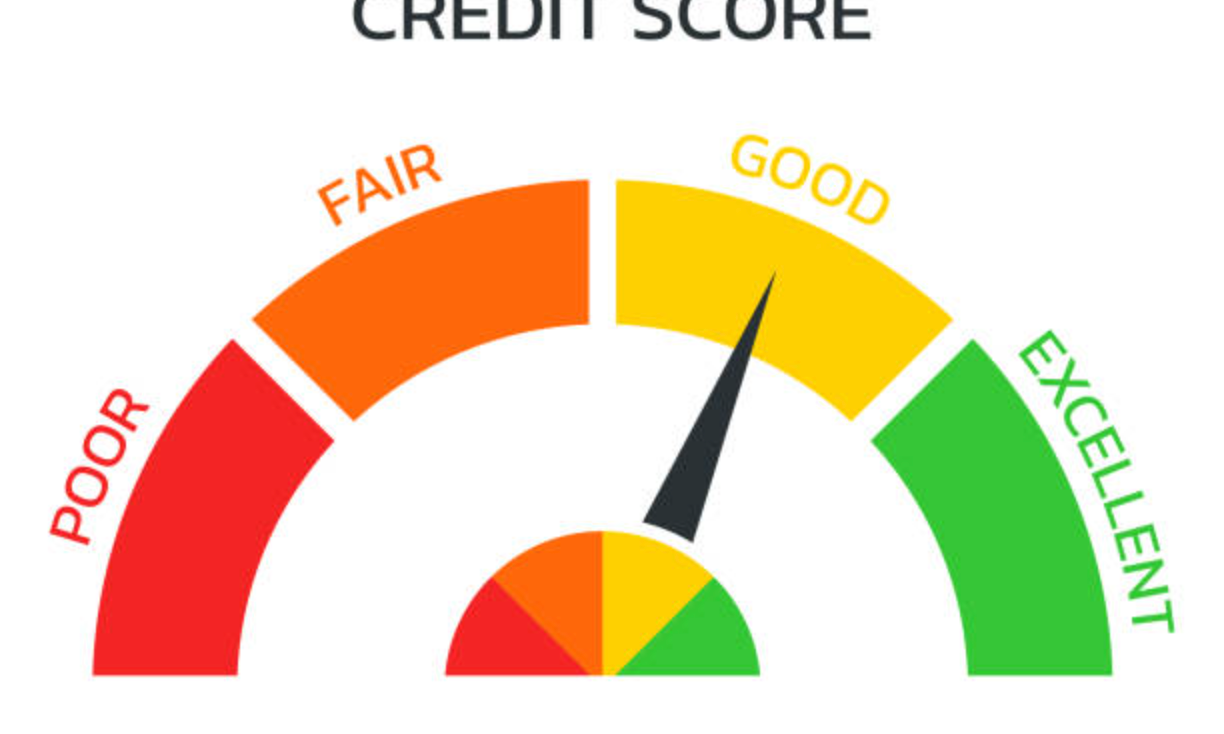Is 524 a Bad Credit Score?
A 524 credit score falls in the "poor" range, affecting borrowing capabilities and financial opportunities. This blog explores the significance of a 524 credit score, the factors contributing to it, and offers actionable strategies to improve your score and enhance your financial health.
Abhinil Kumar
Author

Credit scores play a crucial role in determining an individual’s financial health and borrowing capabilities. A credit score of 524 falls within the “poor” range on most credit scoring models, which can significantly impact one’s financial opportunities. In this blog, we will delve into what a 524 credit score means, the factors contributing to such a score, its implications, and strategies to improve it.
What is a Credit Score?
A credit score is a numerical representation of an individual’s creditworthiness. It is a three-digit number that lenders and financial institutions use to evaluate a person’s likelihood of repaying their debts and managing credit responsibly. The higher the credit score, the more creditworthy the individual is considered.
Credit scores are significant because they play a crucial role in determining one’s ability to access credit and obtain favorable terms on loans and other financial products. Lenders rely on credit scores to assess the risk associated with lending money to individuals. Higher credit scores often result in lower interest rates, allowing borrowers to save money over time.
Several factors influence credit scores. One of the most critical factors is the credit usage rate, which refers to the percentage of available credit that an individual utilizes. Keeping this rate low demonstrates responsible credit management and can positively impact credit scores.
Another factor is the length of credit history. The longer an individual has had credit accounts open, the more reliable their credit information becomes, contributing to a higher credit score. Late payments, delinquencies, or accounts in collection can significantly lower credit scores.
Credit scores impact financial decisions beyond borrowing. Landlords may use credit scores to determine whether to rent to someone, insurance companies may consider credit scores in setting rates, and even potential employers may review credit scores as part of a background check.
Purpose of a Credit Score
A credit score is an essential tool used by lenders to assess an individual’s creditworthiness. It is a numerical representation of a person’s financial history, indicating their ability to repay debts. The purpose of a credit score is to provide creditors and financial institutions with a standardized method of evaluating an individual’s credit risk before extending them credit. A higher credit score indicates a lower risk, making it more likely for borrowers to secure loans, obtain favorable interest rates, and access various financial opportunities. Understanding the purpose of a credit score is crucial for individuals looking to improve their creditworthiness and make informed financial decisions.
Understanding the Range of Credit Scores
The credit scoring ranges used by lenders may vary, but a commonly used scoring range is from 300 to 850. Within this range, scores can be categorized into different credit rating levels. For example, a score below 580 is typically considered poor, while a score between 580 and 669 falls into the fair category. A score between 670 and 739 is considered good, and a score between 740 and 799 is classified as very good. Anything above 800 is seen as excellent.
Having a good credit score is vital as it determines the likelihood of lenders approving credit applications. A good credit score reflects responsible credit management and demonstrates to lenders that an individual is likely to repay their debts on time. This paves the way for favorable loan terms and lower interest rates, thus leading to increased financial opportunities.
Excellent Credit Score Range
An excellent credit score range typically falls within the range of 800 to 850. This score demonstrates a borrower’s exceptional creditworthiness and financial responsibility. Achieving an excellent credit score comes with several benefits for borrowers like:
- Individuals with excellent credit scores gain easier access to loans and credit cards. Lenders and credit card issuers view borrowers with excellent scores as low-risk individuals, making them more inclined to approve applications. This translates into a smoother borrowing process, with reduced scrutiny and quicker approvals.
- Having an excellent credit score puts borrowers in a favorable position to secure the best interest rates. Lenders are willing to offer loans and credit cards at lower interest rates to borrowers with excellent scores, resulting in substantial savings over time. With lower interest rates, borrowers can pay off debts more swiftly and potentially incur less interest charges.
- An excellent credit score allows for more generous credit limits. Lenders are more willing to extend higher credit limits to individuals with excellent scores, as they have a proven track record of responsible credit management. Borrowers can enjoy the convenience of higher credit limits, providing them with more financial flexibility and increased purchasing power.
Good Credit Score Range
A good credit score range generally falls within 670 to 799, according to most credit reference agencies. However, it is important to note that credit scores may vary slightly depending on the agency used. Each credit reference agency may have its own criteria and methods for calculating credit scores, resulting in different ranges.
Factors to consider when determining a good credit score for your age include your payment history, credit utilization ratio, length of credit history, types of credit used, and any recent credit inquiries. These factors may carry different weights depending on your age. For instance, younger individuals may be at a disadvantage as they may have a shorter credit history, while older individuals may benefit from a longer credit history.
It is crucial to understand that credit scores are only one factor considered by lenders when making a lending decision. Other factors may include income, employment history, and debt-to-income ratio. Lenders look at the overall financial profile of the borrower to assess their creditworthiness and determine the risk of granting them credit.
Fair Credit Score Range
A fair credit score is generally considered to be in the range of 580 to 669, according to the FICO credit scoring model. This range indicates that the individual’s credit history is not entirely satisfactory and they may have had some difficulties in managing credit.
Having a fair credit score can have several implications. Firstly, individuals with fair credit scores may have more limited access to credit, as lenders may consider them to be higher risk borrowers. This means that they may be offered lower credit limits compared to those with higher credit scores.
Additionally, individuals with fair credit scores are often subject to higher interest rates on loans and credit cards. Lenders perceive borrowers with fair credit scores as more likely to default or to have late payments, so they charge higher interest rates to compensate for the increased risk. This can make borrowing more expensive and result in higher monthly payments or interest charges.
Furthermore, having a fair credit score can also impact an individual’s ability to secure certain financial products or benefits. For example, they may be denied certain credit cards, rental applications, or even employment opportunities that require a satisfactory credit score.
Poor Credit Score Range
Scores below 580 are considered poor. A 524 credit score falls into this category, indicating a history of credit difficulties and higher risk for lenders. Individuals with poor scores face significant challenges in securing credit and often receive unfavorable terms.

Range of credit score
What Does a 524 Credit Score Mean?
A credit score of 524 indicates a poor credit standing. Several factors contribute to such a low score. Firstly, late payments or defaults on loans, credit card bills, or other financial obligations significantly impact credit scores. A history of delinquencies suggests an inability to manage finances responsibly, resulting in a negative credit assessment.
High credit utilization, using a large portion of available credit limits, also affects credit scores. Maxing out credit cards or carrying high balances indicate a heavy reliance on credit, undermining creditworthiness. Furthermore, recent applications for new credit can hurt scores. Multiple credit inquiries imply a borrower’s desperate search for credit, signaling potential financial instability.
A credit score of 524 severely limits borrowing options. Traditional lenders, such as banks and credit unions, are hesitant to provide loans or credit cards to individuals with such credit profiles. Available options may include subprime lenders, but they typically charge exorbitant interest rates and fees to mitigate the perceived risk. Additionally, borrowing limits may be significantly lower, further constraining financial flexibility.
When applying for unsecured credit, individuals with a 524 credit score may encounter significant challenges. Unsecured credit relies solely on a borrower’s creditworthiness, without any collateral to secure the loan. Lenders carefully assess credit history and previous credit problems to determine the level of risk associated with lending. A poor credit history and numerous past credit problems reduce the chances of obtaining approval and may result in higher interest rates.
Impact of a 524 Credit Score on Financial Opportunities
A 524 credit score significantly restricts financial opportunities. Lenders view individuals with this score as high-risk borrowers, leading to potential loan denials or approval with high-interest rates. It also affects rental applications, insurance rates, and even employment prospects, as many employers check credit history during the hiring process.
Factors Affecting a 524 Credit Score
- Payment History: Late or missed payments are major contributors to a low credit score. Consistently failing to pay bills on time signals financial irresponsibility to lenders.
- Credit Utilization Ratio: High credit utilization, or using a large portion of available credit limits, negatively impacts credit scores. Maintaining a low utilization ratio is crucial for improving credit.
- Length of Credit History: A short credit history can lower a credit score. Lenders prefer borrowers with longer credit histories, as it provides a clearer picture of financial behavior.
- Outstanding Debt: A large amount of outstanding debt can drag down credit scores. Reducing overall debt is essential for credit improvement.
- Accounts in Collections or Bankruptcy: Accounts in collections or a history of bankruptcy severely damage credit scores. Resolving these issues and avoiding future delinquencies is critical for recovery.
How to Improve a 524 Credit Score
- Review Your Credit Report: Start by reviewing your credit report for errors or inaccuracies. Dispute any incorrect information with the credit bureaus to ensure your score reflects accurate data.
- Pay Bills on Time: Consistently paying bills on time is the most effective way to improve your credit score. Set up reminders or automatic payments to avoid missing due dates.
- Reduce Credit Utilization: Aim to keep your credit utilization ratio below 30%. Pay down outstanding balances and avoid accumulating new debt.
- Avoid New Credit Inquiries: Limit new credit applications, as each inquiry can temporarily lower your score. Focus on managing existing credit responsibly.
- Consider Credit Counseling: If you’re struggling with debt, consider seeking help from a credit counseling agency. They can provide guidance on budgeting, debt management, and improving your credit score.
Conclusion
In conclusion, a credit score of 524 is considered a poor credit score, which can significantly impact one’s financial opportunities. This score reflects a history of late payments, high credit utilization, or other negative credit behaviors. It makes securing loans, credit cards, and other financial products challenging, often resulting in higher interest rates and less favorable terms. Understanding the factors that affect credit scores, such as payment history, credit utilization rate, and the mix of credit types, is crucial for improving one’s credit standing. By focusing on timely payments, reducing debt, and diversifying credit, individuals can work towards enhancing their credit scores and expanding their financial opportunities.
FAQs
-
Is 524 a bad credit score? Yes, a credit score of 524 is considered a bad credit score. It falls within the “poor” range, indicating a high risk to lenders and financial institutions.
-
How can I improve a credit score of 524? Improving a credit score of 524 involves making timely payments, reducing the credit utilization rate, managing monthly payments effectively, and diversifying the credit mix. Additionally, regularly monitoring your credit report for errors can help improve your score.
-
Can I get an auto loan with a credit score of 524? While it is possible to get an auto loan with a credit score of 524, it is likely to come with higher interest rates and less favorable terms. Lenders consider a score of 524 as a bad credit score, which poses a higher risk.
-
What impact does a 524 credit score have on insurance rates? A poor credit score, such as 524, can result in higher insurance rates. Insurance companies often view individuals with bad credit scores as higher risk, which can lead to increased premiums for auto, home, and other types of insurance.
-
What is the minimum credit score required for unsecured loans? The minimum credit score required for unsecured loans varies by lender, but generally, a higher score than 524 is needed. Most lenders prefer a credit score in the fair to good range (580 and above) to approve unsecured loans.


